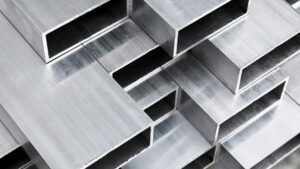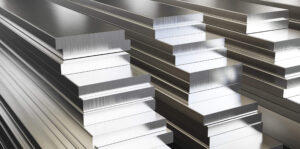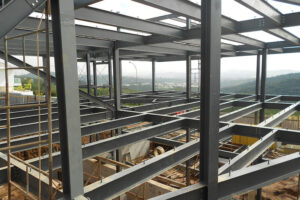What Future Aluminum Holds?
What Future Aluminum Holds?
The aluminum industry is the largest in the world, annually producing more than 22 billion pounds of metal worth nearly $40 billion. Aluminum is in fact, a versatile metal with many unique properties that make it a highly desirable material. Lightweight, resistance to corrosion, high strength, and recyclability have made it an essential material for modern economies.

Aluminum forms an integral part of our daily lives. Stronger, yet lighter, it has come a long way and today, it is paving the way for the metal industry. This lightweight metal has proven its functionality and has become the preferred metal in several industries like construction, aviation, telecommunication, technology, healthcare, food and beverage, and other domestic segments that are aware of the potential of the aluminum application.
So, what does aluminum’s future hold?
Increased global demand
The topic of aluminum is typically thought of as a relatively young metal when compared to iron and steel. While the metal is relatively young, it is widely used. This versatile metal has in recent decades risen to prominence in terms of global demand and production volume.
As the global economy recovers from the ongoing pandemic, demand for aluminum products such as food and beverage cans and packaging has soared. Aluminum’s global demand is expected to increase this year to an all-time high. Research agency Fitch Solutions Country Risk & Industry Research says the global aluminum consumption will increase from 64.2-million tons in 2021 to 78.4-million tons by 2029, averaging 2.6% annual growth. The high demand for aluminum is also primarily attributed to the expansion of aluminum usage in the building and construction industry that relies heavily on aluminum. The automotive and aerospace sectors will remain as well the key driver behind the growth as they will increasingly support aluminum demand in key markets, as a lightweight and therefore environmentally preferable alternative to steel.
The modern-day era can be labeled as the Aluminum Age with all the domains working together to optimize efficiency and to create an environment that fosters innovation. There is not a single domain that has not been touched by aluminum’s dynamic properties and this is only going to increase the demand for aluminum in the upcoming eras. In the coming space-age times that will witness flying cars, metallic high-rise skyscrapers reaching into the clouds, and even AI robots, all these and more will see aluminum taking its place as a metal of worth now and beyond.

Growing Into a Futuristic Metal
In her 2014 book “Aluminum Dreams: The Making of Light Modernity,” Mimi Sheller describes how the use of aluminum changed many aspects of modern life for the better and how it stacked up very well against competitive materials. Metals and plastics industries were competing more fiercely. The Steel Alliance had budgeted $100 million for a print and television campaign promoting the use of steel, particularly in the automotive industry, and the plastics trade association in Germany spent $11 million in 1997. The aluminum industry spent only $500,000 on promotional activities. Aluminum has been considered one of the most viable substitutes, replacing iron and steel. Its recycling capabilities provide considerable economic benefits to clients in terms of total return on investment and environmental benefits in terms of reduced energy usage.
The upcoming age will see aluminum taking over other metals. The construction industry has always been reliant on steel but today, from steel to aluminum, we will be witnessing the brace of an enormous transition. Aluminum is the new steel. Due to its toughness and high strength-to-weight ratio, this extraordinary metal can largely contribute to providing strength, resilience, and delivering sustainable structures in the building and construction domain.
Among futuristic metals, aluminum is the preferred choice. It is also a key material for designing beautiful which makes it also the preferred metal in the domain of power engineering, aerospace, automotive and rail industry, military submarines, and other arms in the defense sector.

Aluminum Is an Environmentally Friendly Metal with a Bright Future
Sustainable structures need sustainable components. It is indeed an optimistic future ahead for aluminum. To run the wheel of development and sustainability, there is a need for an ideal metal that can restore an environmentally friendly future while still serving diverse industrial purposes. Wherever and whichever industry requires a material that is sustainable, flexible, and endlessly moldable, the aluminum advantage will always stand out, making this lightweight metal one of the top picks amongst other materials. According to aluminum.org, “Aluminum is so critical to modern mobility, increasing sustainability and the… economy that without it, many of the conveniences of today’s world would simply not exist.” Aluminum has a promising future and with such advancements and more, aluminum will take its rightful place in the future world as a material of value.

There’s still time to get ahead of the curve with MASS Aluminum!
The aluminum market is set for growth as end-markets see increased demand and megatrends call for environmental and energy-efficient constructions. Aluminum manufacturers have more reason than ever to embrace the future of aluminum. As one of the leading aluminum producers in Nigeria, MASS supplies a wide range of aluminum for general engineering, architectural, construction and manufacturing industries. Keeping pace with the new trends in the industry, our aluminum solutions are characteristically tailor-made to suit customers’ preferences.
Lorem ipsum dolor sit amet, consectetur adipiscing elit, sed do eiusmod tempor incididunt ut labore et dolore magna aliqua. Ut enim ad minim veniam, quis nostrud exercitation ullamco laboris nisi ut aliquip ex ea commodo consequat. Duis aute irure dolor in reprehenderit in voluptate velit esse cillum dolore eu fugiat nulla pariatur. Excepteur sint occaecat cupidatat non proident, sunt in culpa qui officia deserunt mollit anim id est laborum.
